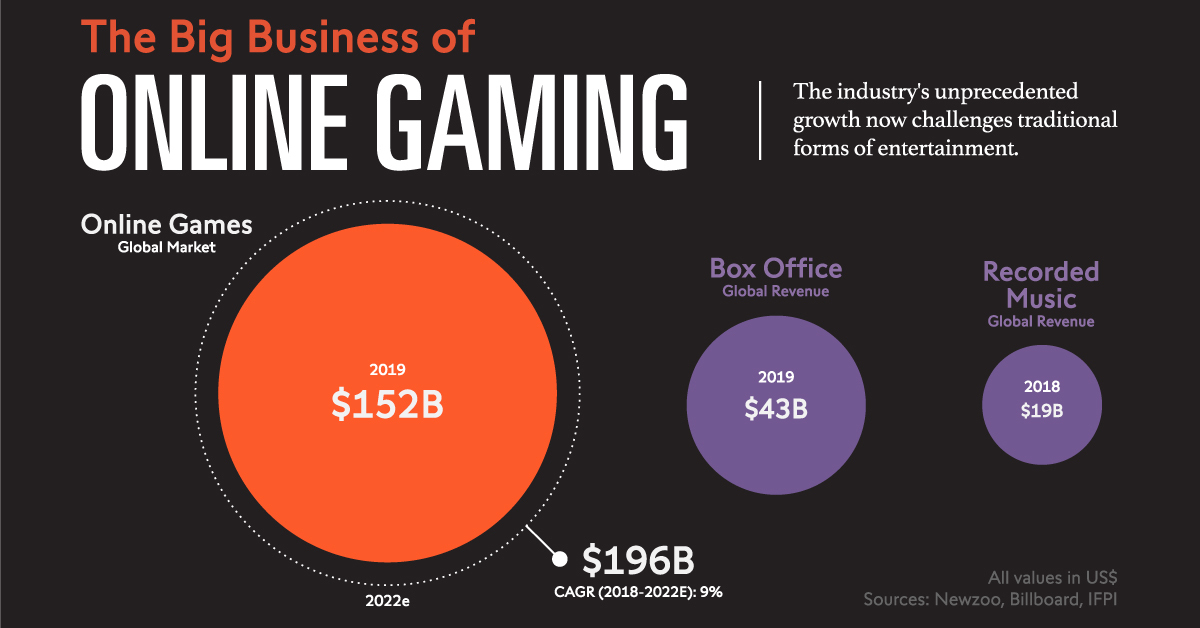The Hookup Critic
Your go-to source for honest reviews and tips on dating and relationships.
From Streams to Stacks: The Cash-Infused World of Competitive Gaming
Dive into the cash-driven realm of competitive gaming, where streams and stacks collide for epic wins and big bucks! Don't miss out!
How Streaming Platforms Are Transforming Competitive Gaming into Profitable Ventures
The rise of streaming platforms like Twitch and YouTube Gaming has revolutionized how competitive gaming is not just a hobby, but a profitable venture. Gamers can now showcase their skills to a global audience, attracting millions of viewers and building dedicated fanbases. This shift has led to a new generation of esports athletes who capitalize on sponsorship deals, merchandise sales, and ad revenues generated from their streaming channels. As a result, competitive gaming is becoming a lucrative career path, with top players earning six-figure incomes and establishing financial stability in an industry that was once overlooked.
Furthermore, the integration of live streaming with competitive gaming has opened the door to innovative revenue streams for players and developers alike. Platforms offer monetary incentives through subscription models, where fans pay for exclusive content and perks, fostering a direct connection between gamers and their audience. Additionally, tournaments are now frequently live-streamed, engaging viewers and enabling them to participate in real-time betting and insights that further enhance the viewing experience. Consequently, streaming platforms have become an essential part of the competitive gaming ecosystem, transforming it into a vibrant and profitable landscape for players, developers, and sponsors alike.

Counter-Strike is a highly popular team-based first-person shooter game that has captivated millions of players worldwide. The game features various modes where teams compete to complete objectives, such as defusing bombs or rescuing hostages. Players often seek ways to enhance their gaming experience, and utilizing a csgoroll promo code can provide valuable in-game benefits. The competitive nature of Counter-Strike ensures that each match is unique and filled with strategic gameplay.
The Financial Landscape of eSports: From Prize Money to Sponsorships
The financial landscape of eSports has evolved dramatically over the years, transitioning from a niche hobby to a multi-billion-dollar industry. Today, the prize money offered in major tournaments often rivals that of traditional sports, with events like The International offering prize pools exceeding $40 million. As eSports gains popularity, players can earn significant income not only from tournament winnings but also through sponsorship deals, merchandise sales, and streaming platforms. This shift highlights the potential for aspiring gamers to pursue a professional career in the gaming industry.
Sponsorships play a crucial role in the financial ecosystem of eSports, as brands increasingly recognize the value of engaging with a predominantly young and digitally-savvy audience. Companies such as Riot Games, ESL, and Activision Blizzard attract major sponsors, ranging from tech giants to beverage brands. According to industry reports, the global eSports sponsorship market is projected to reach nearly $1.8 billion by 2023, reflecting the growing interest and investment in this arena. Understanding the financial dynamics of eSports is essential for stakeholders looking to capitalize on this lucrative market.
Is Competitive Gaming a Viable Career? Exploring Earnings and Opportunities
Competitive gaming, often referred to as esports, has transformed from a niche hobby into a global phenomenon, paving the way for numerous career opportunities. As competitive gaming gains mainstream recognition, many have begun to explore the financial potential it holds. Professional gamers can earn money through various avenues, including tournament prizes, sponsorship deals, and streaming platforms like Twitch and YouTube. For instance, top players can secure multi-million dollar contracts, and the prize pools for major tournaments can reach staggering figures, sometimes exceeding $30 million. This financial allure has sparked interest among young gamers looking to turn their passion into a lucrative career.
However, while the potential for high earnings exists, pursuing a career in competitive gaming requires more than just talent. It demands dedication, rigorous practice, and a thorough understanding of the gaming landscape. Aspiring professional gamers must be prepared to invest countless hours honing their skills and building a personal brand. Additionally, they should consider the longevity of their careers, as the gaming industry is constantly evolving, with new games and trends emerging regularly. Overall, while competitive gaming can be a viable career path, it necessitates a strategic approach and a willingness to adapt to the fast-paced nature of the esports world.